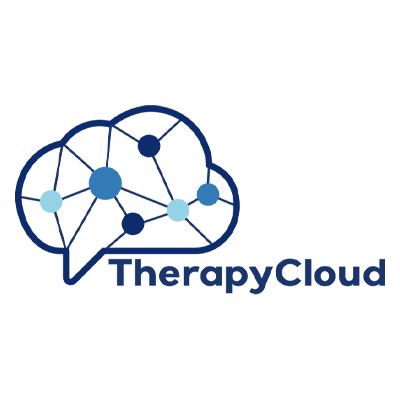Will AI Replace Therapists? The Future of Psychotherapy and Artificial Intelligence

Will AI Replace Therapists? The Future of Psychotherapy and Artificial Intelligence
Introduction
Artificial intelligence (AI) is revolutionizing industries across the globe, including mental health. AI-powered chatbots, virtual therapy apps, and machine learning models designed to analyze emotions are rapidly advancing. But as AI grows in capability, one of the most common concerns raised by any professional field is if AI will replace their industry professionals. The field of therapy is no different. Therapists are left asking: Will AI replace therapists?
For licensed therapists and mental health professionals, AI presents both exciting opportunities and significant concerns. While AI can enhance therapy by offering 24/7 support, reducing costs, and increasing accessibility, it lacks the human intuition, empathy, and ethical decision-making that define psychotherapy.
This article explores the role of AI in therapy, its limitations, and the future of human therapists in an increasingly AI-driven world. If you’re a therapist wondering how AI will impact your practice, read on.
Making AI Approachable
A central challenge with AI is that it can feel intimidating and other-worldly to those not familiar with it. This means that the fear of AI is mostly a fear of the unknown. But, AI doesn’t have to be an “enemy” or even a risk for psychotherapists.
Let’s de-mystify AI by asking ChatGPT “Will AI replace therapists?”. Chat GPT gives the following response to this prompt:
“No, ChatGPT—or AI in general—won’t eliminate the need for psychotherapists. While AI can assist in certain ways, such as providing mental health resources, offering coping strategies, or guiding users through self-help exercises, it cannot replicate the nuanced, empathetic, and deeply human aspects of psychotherapy.
Psychotherapy involves much more than just sharing information or giving advice—it requires the ability to form a therapeutic relationship, understand complex emotions, and navigate sensitive, personal issues. Psychotherapists bring emotional intelligence, intuition, and ethical judgment to their practice, all of which are critical for helping individuals with mental health struggles.
While AI may be able to help with basic mental health support, it is unlikely to replace the expertise, emotional connection, and deep understanding that human therapists provide. Many people seek therapy not just for advice, but for a space to be heard, understood, and supported in a personal and empathetic way, which is something that AI cannot fully replicate.
Moreover, the therapeutic process often involves recognizing and addressing complex psychological patterns and behaviors over time—something that requires professional training and the ability to adapt to each unique individual. AI can complement the work of mental health professionals, but it won’t replace them.”
Research on AI in Mental Health: Successes and Risks
Just like any other tool, while therapists can collaborate with AI, we also don’t want to solely rely on it. So, going beyond ChatGPT’s above response to asking “Will AI replace therapists?”, here is what research has to say about the successes and risks of using AI in a mental health setting.
Successful AI Interventions in Therapy
Several studies have demonstrated AI’s potential as a therapeutic tool:
- Woebot’s Efficacy: A 2017 study published in JMIR Mental Health found that Woebot, an AI-driven chatbot, significantly reduced symptoms of depression in young adults over a two-week period compared to a control group. Participants found it helpful due to its accessibility and anonymity.
- AI for PTSD Treatment: Research from the University of Southern California’s Institute for Creative Technologies has developed AI-driven virtual therapists, such as "Ellie," which helps veterans with PTSD by analyzing facial expressions and speech patterns to improve assessment accuracy.
- AI-Enhanced Suicide Prevention: A study by the National Institute of Mental Health found that AI algorithms analyzing social media posts and medical records could predict suicide risk with high accuracy, allowing for earlier intervention.
- AI-Coached Responses: For those with conditions like autism, AI can help clients craft socially-understandable and appropriate responses to things that, otherwise, would be confusing or off-putting.
- Knowledge of AI Services Irrelevant to Outcomes: There is plenty of data that documents both positive feedback and outcomes even when someone is knowingly receiving mental health support from an AI bot versus a human. Psychotherapist and podcaster Ester Perel illustrates this interesting phenomenon when she shares how a coder who created an AI version of her to help him with his problems had “the most clarity he’d ever had about his relationships” despite him being the literal creator of the digital intervention he received. (You can find her thought-provoking speech on “Artificial Intimacy” here - minutes 10:45-14:40 are of particular help).
Risks and Ethical Concerns in AI Therapy
Despite these successes, AI in mental health has also raised concerns:
- Misdiagnosis and Over-Reliance on AI: A 2020 study published in The Lancet Digital Health found that AI models could sometimes misdiagnose mental health disorders due to biased training data, potentially leading to incorrect treatment recommendations.
- Perpetuations of Bias: AI has made headlines for its inaccurate prompts and perpetuations of bias in ways that can cause further shame, prejudice, and discrimination, adding risks for mental health - particularly for those of minority populations.
- Data Privacy and Security Issues: In 2021, the mental health app Talkspace faced scrutiny over how it handled sensitive user data. AI-driven therapy platforms must ensure robust security measures to protect client confidentiality.
- Lack of Crisis Response: AI chatbots like Replika have been criticized for their inability to effectively handle users in crisis. Unlike human therapists, AI lacks the ability to escalate urgent situations to emergency services reliably.
- Harmful Advice from AI: A 2023 report from Harvard T.H. Chan School of Public Health found that AI-powered tools provided potentially harmful advice related to eating disorders, demonstrating the dangers of relying on AI for mental health support without human oversight.
These examples highlight the potential of AI in mental health while underscoring the need for ethical guidelines and human oversight.
Why AI Can’t Replace Human Therapists
Despite AI’s capabilities, even with “human oversight,” AI falls short in critical areas that define effective therapy:
1. Lack of Human Empathy
AI can recognize emotions through data but does not truly understand or feel emotions. Human therapists provide a level of emotional connection, validation, and compassion that AI cannot replicate. All AI knows is “prompts” and the suggested responses given the information given.
2. Ethical and Confidentiality Concerns
AI-powered tools collect and store sensitive patient data, raising concerns about privacy and security. A human therapist, bound by confidentiality laws and ethical guidelines, offers greater trust and assurance.
3. Context and Nuance in Therapy
Therapy often requires deep discussions about past traumas, complex emotions, and unique personal experiences. AI struggles with context, cultural differences, and the nuanced interpretation of human interactions.
4. The Need for Professional Judgment
Mental health treatment is not one-size-fits-all. A licensed therapist adapts their approach based on a client’s unique needs, history, and responses—something AI cannot do.
The Current Role of AI in Therapy
Despite these limitations to AI in therapy, AI can make an impact on the practice of therapy in several ways:
1. AI-Powered Therapy Chatbots
Chatbots like Woebot and Wysa use natural language processing (NLP) to provide cognitive behavioral therapy (CBT)-based interventions. They are accessible, affordable, and anonymous, making them useful for individuals who may not seek traditional therapy.
2. AI-Assisted Diagnosis and Treatment Planning
Machine learning models analyze vast amounts of data to help clinicians identify mental health disorders more accurately. AI can detect patterns in speech, text, and even facial expressions to assess emotional states.
3. Teletherapy and Automated Support Systems
Mental health technology can incorporate AI to provide self-guided therapy exercises, monitor progress, identify safety concerns, and remind patients to practice mindfulness or take medication.
While these advancements are impressive, they still do not replace human therapists. Instead, they serve as tools to supplement traditional therapy.
How Therapists Can Use AI to Their Advantage
Instead of fearing AI, therapists can integrate it into their practice to enhance their work. Here’s how:
1. Using AI for Administrative Tasks
AI can help with scheduling, billing, and record-keeping, allowing therapists to focus more on patient care.
2. Enhancing Client Engagement
Therapists can recommend AI-based mental health apps to clients as supplementary tools for self-care between sessions.
3. Gaining Insights from AI Data
AI-driven analytics can help therapists track a client’s progress more effectively by analyzing mood patterns and therapy session feedback.
4. Providing Crisis Intervention Support
AI chatbots can offer immediate support to clients outside of therapy hours, directing them to emergency help if needed.
The Future of Therapy: AI as a Partner, Not a Replacement
The future of psychotherapy will likely involve a hybrid model where AI and human therapists work together. AI can handle routine, data-driven tasks, while human therapists provide the deep, empathetic, and personalized care that clients need.
Mental health professionals can embrace AI as an ally, not a competitor. By staying informed about technological advancements, therapists can ensure they remain at the forefront of their field, offering the best of both human connection and digital efficiency.
FAQs About AI and Therapy
1. Can AI replace a human therapist?
There is no replacement for a human therapist. AI lacks human empathy, intuition, and ethical judgment, making it a tool rather than a replacement for therapists.
2. Are AI therapy chatbots effective?
AI chatbots can provide immediate support and CBT-based exercises but are not a substitute for professional therapy.
3. Should therapists use AI in their practice?
While AI can assist with administrative tasks, data analysis, and client engagement, helping therapists provide better care, whether a therapist uses AI in their practice is ultimately an individual professional decision. Knowing your credential’s recommendations and limitations, especially as it relates to HIPAA-compliance, for AI use should also be an essential consideration.
4. Is AI therapy ethical?
Ethical concerns exist, particularly around data privacy and decision-making. It’s crucial to use AI responsibly and within ethical guidelines. For more information about the specifics of the HIPAA Privacy rule, check out the official guidelines here.
5. How will AI impact the future of therapy?
AI will likely enhance therapy rather than replace therapists, creating a more efficient and accessible mental health system.
Conclusion
AI is transforming mental health care, but it will not replace therapists. Instead, AI can enhance therapy by providing support tools, improving efficiency, and making mental health care more accessible.
Therapists should view AI as a valuable resource rather than a threat. By integrating AI into their practice while maintaining the human touch that defines psychotherapy, they can ensure that clients receive the best possible care in the digital age.
What do you think?
Are you a therapist interested in AI? Share your thoughts in the comments below!




.png)